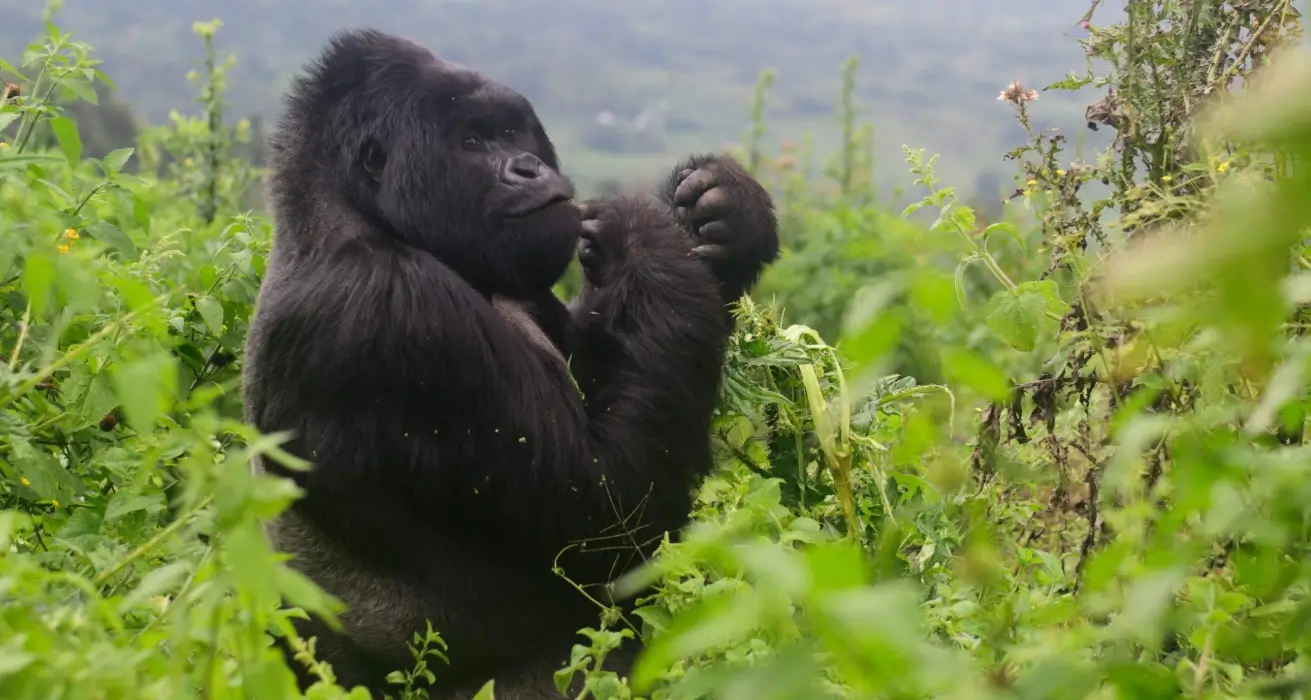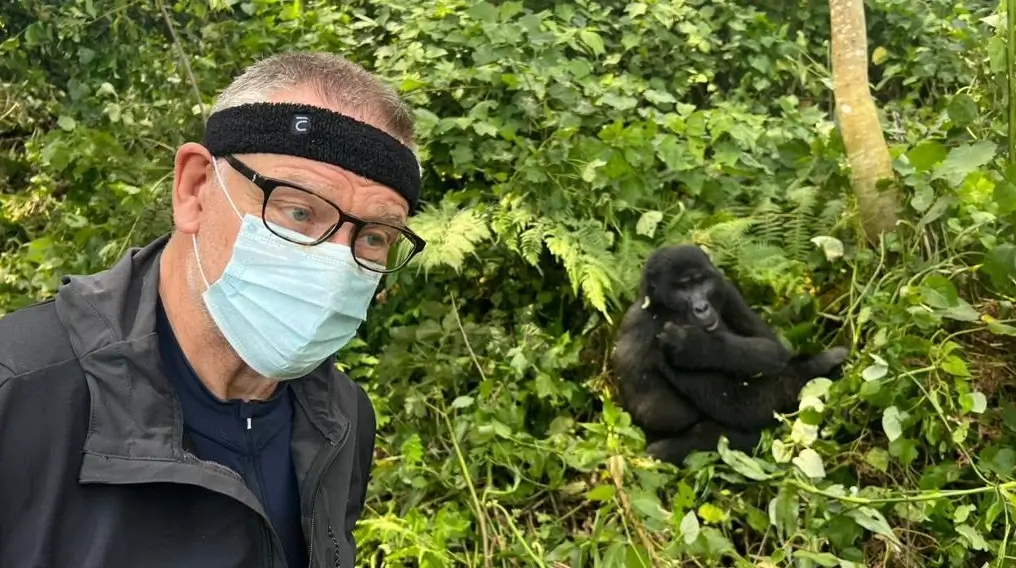Mountain Gorilla Trekking Rules & Etiquette
Gorilla trekking is one of the most profound wildlife encounters on Earth. Whether you’re venturing into the misty mountains of Bwindi, Volcanoes, or Virunga, your one-hour encounter with a habituated gorilla family is a privilege—and it comes with responsibility.
This guide covers essential gorilla trekking rules, health precautions, and expert etiquette tips to ensure your experience is safe, respectful, and unforgettable.
Before the Trek

Permits are mandatory and strictly limited: Only 8 visitors are allowed per gorilla family each day to minimize stress and disease transmission.
Group allocation is done during briefing: While assignments are generally random, older guests or those with mobility needs may be placed in less strenuous groups.
Hand hygiene is required: Wash or sanitize your hands before the trek begins. You’ll be entering a highly sensitive ecological zone.
During the Trek
Keep your voice low at all times to respect the environment and increase chances of spotting other wildlife like birds and monkeys.
No littering: Leave no trace. Even biodegradable waste can harm the ecosystem.
Follow your ranger’s lead: Treks begin from the gorilla group’s last known nesting site. Your guide will take you on the safest and most efficient
When With the Gorillas
Maintain a minimum distance of 7 meters (21 feet)—even if the gorillas approach you.
No touching or feeding: These are wild, endangered animals. Human contact jeopardizes their health and natural behavior.
No eating, drinking, or smoking near the gorillas.
No flash photography: Use a silent shutter if possible and adjust your ISO to accommodate dim forest lighting.
Stay calm if a gorilla charges: Crouch slowly, avoid direct eye contact, and never run.
You have a maximum of one hour with the gorilla family, unless the group becomes agitated—then the guide may end the session early.
Health Guidelines: Protecting Gorillas From Human Disease

Gorillas share up to 98% of our DNA, making them susceptible to human-borne illnesses.
Don’t trek if you’re sick: If you have flu, COVID-19, or any transmissible illness, stay behind. You may be rescheduled or refunded.
Coughing/sneezing etiquette: Turn away and cover your nose/mouth completely.
Use park toilets or follow ranger protocol: Human waste must be buried in a 30cm deep hole to prevent contamination.
What to Wear & Bring: Essential Packing List for Gorilla Tracking

Waterproof hiking boots with ankle support
Long pants and long-sleeved shirts (neutral colors)
Rain jacket or poncho (weather is unpredictable)
Insect repellent & sunscreen
Reusable water bottle & packed lunch (provided on most tours)
Camera (no flash) and binoculars
Gloves for protection from nettles and thorns
Bonus Tips for a Luxury Experience
Consider hiring a porter: Not just for comfort—they help support local livelihoods.
Request a private trek (subject to availability and extra cost) for a more intimate experience.
Upgrade to a habituation experience in Uganda (4-hour trek instead of 1 hour).
Ask your operator about exclusive-use lodges or helicopter transfers for elevated comfort.
Respect. Silence. Presence.
These three principles will ensure your time in the forest is deeply rewarding—for you, and for the gorillas.
Plan thoughtfully, tread lightly, and you’ll walk away with more than just memories—you’ll become a steward of one of Earth’s last great wildlife sanctuaries.
Visit the Batwa pygmies, once forest dwellers turned cultural stewards. Learn their songs, dances, hunting skills, and medicinal plant knowledge through guided excursions.
FAQs About Gorilla Trekking Rules
No. Strong scents like perfume, deodorant, or scented lotions and body wash can disturb the gorillas or attract unwanted insect attention.
Stick to unscented personal care products on trekking day.
If you need to relieve yourself, inform your ranger guide.
They’ll dig a small hole at least 30 cm deep for you. It must be covered afterward to protect the environment and wildlife.
Yes. The minimum age for gorilla trekking is 15 years.
This rule helps minimize risk and ensure a responsible, controlled experience for both trekkers and gorillas.
No. Gorillas are extremely vulnerable to human diseases.
If you're feeling sick on the day of your trek, you should inform your tour operator. You may be rescheduled or refunded your permit.
Gorilla trekking involves hiking on steep, uneven terrain and can last several hours. Moderate physical fitness is recommended.
Prepare by walking, stretching, and wearing proper hiking boots.

